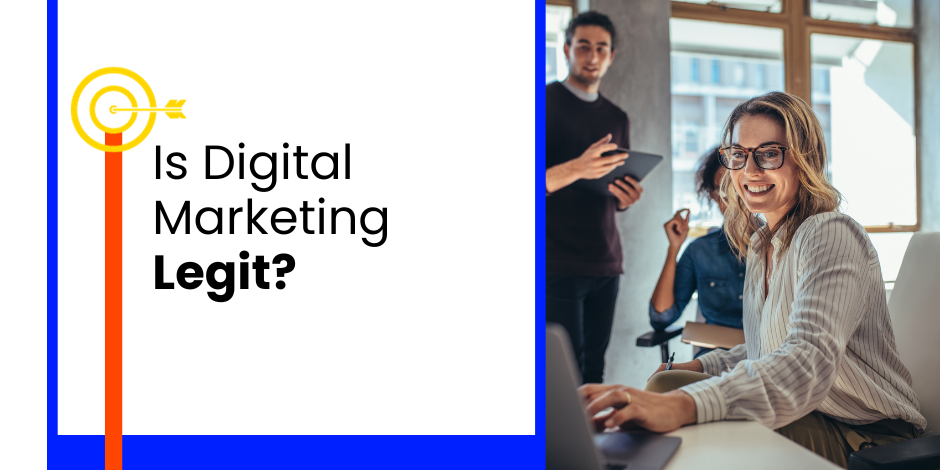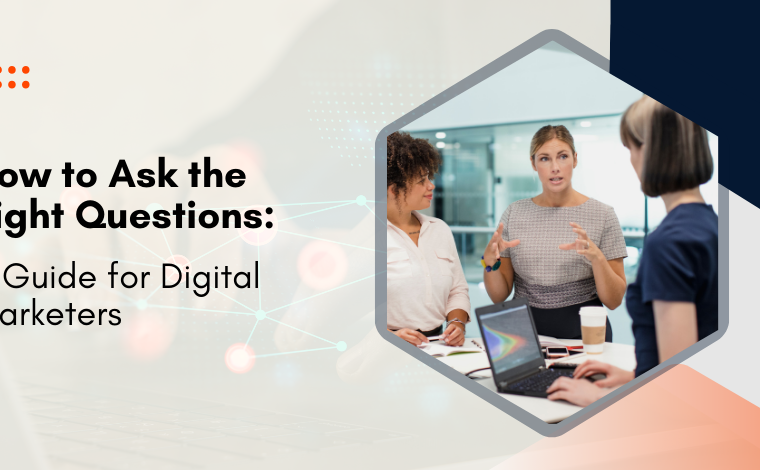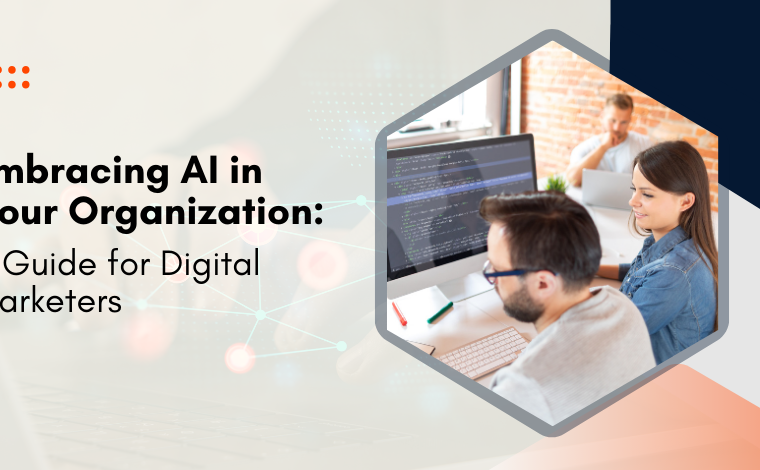Is Digital Marketing Legit? The Truth Behind the Hype

Stay Informed With Our Weekly Newsletter
Receive crucial updates on the ever-evolving landscape of technology and innovation.
Many people question is digital marketing legit? Does it live up to its claims of being highly effective?
We explore the concept of digital marketing and separate the facts from the myths.
Given the constantly evolving landscape of technology, it is important to understand the key components and debunk any common misconceptions that may be hindering its true potential.
Understanding the concept of digital marketing

Digital marketing is a broad term that encompasses various strategies and techniques aimed at promoting products or services through digital channels.
It has revolutionized the way businesses reach and engage with their target audience.
In recent years, the digital landscape has experienced a significant evolution, adapting to the ever-changing demands of the digital age.
The evolution of digital marketing
Gone are the days when marketing relied solely on traditional mediums such as print and television advertisements.
With the advent of the internet, digital marketing has emerged as a powerful tool for businesses to connect with their customers.
From websites and search engine optimization (SEO) to social media and email marketing, digital marketing has become an integral part of every business strategy.
One of the key factors that contributed to the evolution of the digital space is the rise in the adoption of mobile devices.
With smartphones becoming an essential part of people’s lives, businesses had to adapt their marketing strategies to cater to mobile users.
This led to the development of mobile-responsive websites, mobile apps, and location-based marketing techniques.
Another significant aspect to consider is the use of data analytics.
With the vast amount of data available, businesses can now gain valuable insights into their target audience’s behavior, preferences, and purchasing patterns.
This data-driven approach allows businesses to create personalized marketing campaigns that resonate with their customers, resulting in higher engagement and conversion rates.
Key components of digital marketing
Effective campaigns comprise various key components that work together to achieve success.
These components include search engine marketing (SEO), content marketing, social media marketing, email marketing, pay-per-click (PPC) advertising, and more.
Each component plays a unique role in driving traffic, generating leads, and converting prospects into customers.
SEO is crucial for improving a website’s visibility on search engine results pages. By optimizing the website’s content, structure, and technical aspects, businesses can increase their organic search rankings and attract more relevant traffic.
Content marketing involves creating and distributing valuable and relevant content to attract and engage the target audience. This can include blog posts, articles, videos, infographics, and more.
By providing valuable information and addressing the audience’s pain points, businesses can establish themselves as thought leaders and build trust with their customers.
Social media marketing allows businesses to connect and engage with their audience on various social media platforms such as Facebook, Instagram, Twitter, and LinkedIn.
By creating compelling content, running targeted ads, and fostering meaningful conversations, businesses can build a loyal community of followers and drive brand awareness.
Email marketing is a powerful tool for nurturing leads and converting them into customers.
By sending personalized and relevant emails to subscribers, businesses can build relationships, promote products or services, and drive sales.
Email marketing also allows businesses to segment their audience and send targeted messages based on their preferences and behaviors.
Pay-per-click (PPC) advertising involves placing ads on search engines or social media platforms and paying only when users click on them.
This form of advertising allows businesses to reach their target audience directly and drive immediate traffic to their website.
With careful keyword research and ad targeting, businesses can maximize their return on investment (ROI) and achieve their marketing goals.
Debunking common myths about digital marketing

Despite its proven effectiveness, digital marketing is often clouded by myths and misconceptions that leave businesses and marketers alike asking – is digital marketing legit?
Let’s look at two common myths and uncover the truth behind them.
The “Get rich quick” fallacy
One of the biggest myths is the belief that it is a surefire way to get rich quickly.
While it can undoubtedly lead to financial success, it requires time, effort, and a strategic approach.
It is not a magical solution that guarantees overnight success.
Instead, it is a long-term investment that requires consistent effort and adaptation.
The “It’s too complicated” misconception
Another misconception is that it is overly complex and difficult to grasp.
While it is true that digital marketing involves various strategies and techniques, it is not out of reach for businesses of all sizes.
So, is digital marketing legit?
Well, with the right knowledge, guidance, and tools, any business can leverage its power to achieve its goals.
The reality
Now that we’ve debunked the myths let’s explore the reality of digital marketing and shed light on what truly contributes to success in this field.
The role of strategy in digital marketing success
A well-defined strategy is the backbone of any successful digital marketing campaign.
A solid strategy helps businesses identify their target audience, set achievable goals, and choose the most appropriate channels and tactics to reach their audience effectively.
It ensures that every action is aligned with the overall objectives and maximizes the return on investment.
The importance of consistent effort and patience
While digital marketing offers significant advantages, it is crucial to understand that results are not instantaneous.
It takes consistent effort and patience to build a strong online presence and drive meaningful results.
Whether it’s creating engaging content, optimizing websites for search engines, or nurturing relationships on social media, the key is to stay committed and persevere.
The potential benefits of digital marketing
When done right, digital marketing offers a wide range of benefits that can give businesses a competitive edge in the market.
Let’s explore a few of these benefits in more detail.
Reaching a global audience
Digital marketing allows businesses to transcend geographical boundaries and connect with customers worldwide.
By utilizing various online channels, businesses can reach a global audience and expand their customer base without the limitations of traditional marketing methods.
Cost-effectiveness compared to traditional marketing
Many businesses are hesitant to invest in digital advertising due to costly traditional advertising experiences, leading them to question the value of digital marketing and ask – is digital marketing legit?
Unlike traditional marketing methods that often require substantial financial investments, digital marketing can be a cost-effective alternative.
With digital advertising platforms, businesses can target specific demographics, optimize their campaigns in real time, and measure the impact of their marketing efforts, all while staying within their budget.
The potential pitfalls of digital marketing

While the benefits of digital marketing are undeniable, it is important to be aware of the potential pitfalls that come with it.
Let’s explore two such pitfalls and how to navigate them.
The risk of information overload
In the digital world, consumers are bombarded with an overwhelming amount of information.
As a business, it is crucial to cut through the noise and deliver valuable content that captures your audience’s attention.
By creating targeted and relevant content, businesses can avoid being lost in the sea of information and ensure their messages resonate with their target audience.
The challenge of keeping up with changing trends
Digital marketing is a fast-paced industry that is constantly evolving. What may have worked yesterday may not work tomorrow.
To stay ahead, businesses need to stay updated with the latest trends and adapt their strategies accordingly.
This requires continuous learning, experimentation, and staying on top of industry changes.
Conclusion
So, is digital marketing legit?
It is indeed a legitimate and powerful tool for businesses to achieve their objectives.
By understanding the concept, debunking common myths, embracing reality, harnessing potential benefits, and navigating potential pitfalls, businesses can leverage digital marketing to reach new heights.
Are you ready to launch your career in digital marketing?
If so, we encourage you to explore the Institute of Data’s Digital Marketing & Artificial Intelligence program.
Alternatively, we invite you to book a complimentary call with a member of our team to discuss the Digital Marketing program in more detail.




